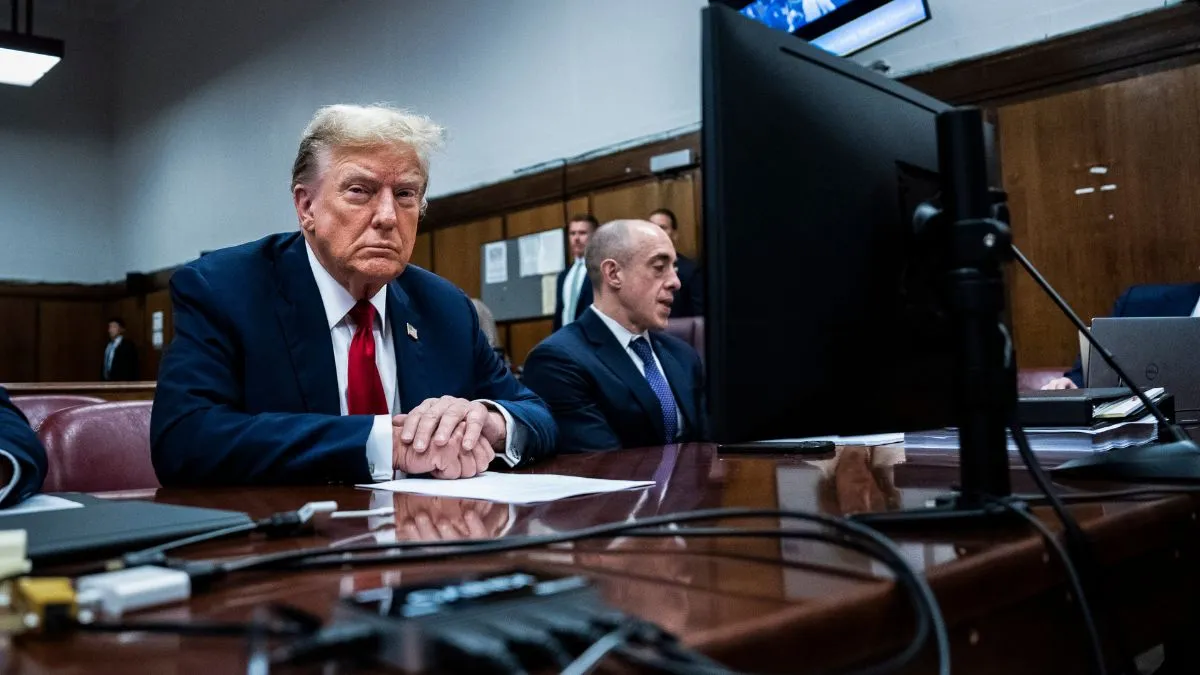On April 15, 2024, history took an unprecedented turn as Donald Trump, the former President of the United States, found himself facing a criminal trial—a monumental event marking the first instance in American history where a sitting president stood trial for criminal charges.
The trial revolves around allegations concerning hush money payments made to adult film actress Stormy Daniels during Trump’s initial presidential campaign. Despite vehemently maintaining his innocence, Trump faces accusations of falsifying business records to conceal a payment exceeding $100,000, a charge that carries significant legal weight.
For years, Trump has evaded accountability, deflecting blame and dismissing the accusations as baseless attacks fueled by political vendettas. However, the tides have turned, and the former president now finds himself confronted with the prospect of judicial scrutiny. As the trial unfolds, spanning into May, the outcome hangs in the balance—a potential conviction that could forever alter Trump’s legacy.
One of the central questions looming over the trial is the issue of Trump’s eligibility for future political office. Despite his polarizing status and a string of controversies, including this criminal trial, the legal landscape regarding his presidential aspirations remains murky. Surprisingly, a felony conviction does not automatically disqualify an individual from seeking the presidency—an oversight that underscores the complexities of the American political system.
This glaring loophole exposes a flaw in the framework of governance, as the possibility of a convicted felon assuming the highest office in the nation challenges conventional wisdom. Trump’s unwavering support base, undeterred by his legal woes, adds fuel to speculation about his potential return to power, should he navigate the legal hurdles unscathed.
However, the irony of Trump’s predicament extends beyond the realm of politics. While a felony conviction may strip individuals of certain rights, such as voting, it does not preclude them from occupying positions of authority—a paradoxical juxtaposition that raises fundamental questions about the principles of democracy and justice.
In states like Florida, where Trump casts his vote, restrictions on voting rights for convicted felons further underscore the contradictions inherent in the American legal system. The notion that individuals deemed unfit to participate in the electoral process can still wield considerable influence from the highest echelons of power highlights the intricacies and contradictions that define the American political landscape.
In this surreal reality where contradictions abound, Trump’s potential path back to the presidency serves as a sobering reminder of the resilience of political figures and the enduring complexities of American democracy. As the trial unfolds and the nation watches with bated breath, one thing remains certain: in the turbulent landscape of American politics, the unexpected is always within the realm of possibility.


